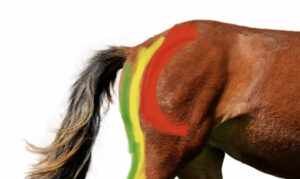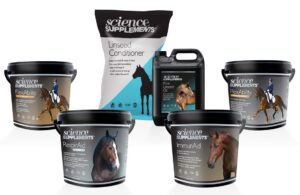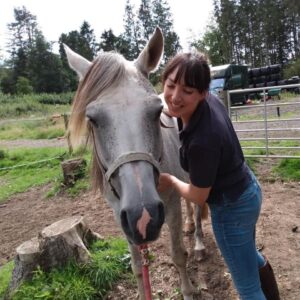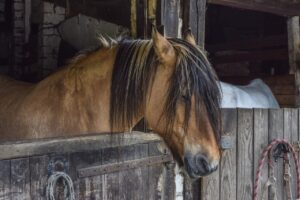It’s nasty biting insects time of year again so you’re starting to think about fly repellent, fly rugs and how to repel the little beasties. Adding garlic to their food may be something you do every summer. But here’s why your Equine Chiropractor says you need to stop!
It can cause anaemia
Garlic contains toxins, one of those toxins is N-propyl-disulfide, which alters the enzyme glucose-6-phosphate dehydrogenase in red blood cells. This interferes with the cells’ ability to prevent oxidative damage to haemoglobin. This results in Heinz Body Anaemia, as shown in this research. As an equine chiropractor, if I notice low energy and lack of interest in your horse, it can be a sign of anaemia and should always be checked by your vet.
It doesn’t repel flies
This research found that consuming garlic did not significantly reduce the amount of mosquito bites.
It doesn’t help keep airways clear
Researchers Markku Saastamoinen, Susanna Särkijärvi and Seppo Hyyppä used 12 Finnhorse mares in their study, described in the Journal Animals Science. They found no significant difference in amount of mucus when scoping between animals that were fed garlic and those that were not. They did however, find that the animals that were fed garlic had reduced haemoglobin indicating mild anaemia.
It’s a poisonous plant
The poisonous element in allium (a family of plants including both garlic and onions) is a chemical called N-propyl disulfide. By altering an enzyme present within the red blood cell, it depletes the cell of a chemical known as phosphate dehydrogenase (PD), whose job is to protect the cell from natural oxidative damage. This results in a bubble occurring on the outside of the haemoglobin. The spleen then removes this from circulation. As more and more haemoglobin suffer from this transformation they are removed and this results in anaemia.
While many horse owners feed garlic to their horses with no ill effects, clinical signs of altered blood chemistry may not always be apparent and can have negative effects. More research and data is needed to fully assess the potential risks and benefits of feeding garlic. Here at McTimoney Animal Therapy and equine chiropractic, I am of the opinion that the risks far outweigh any perceived benefit and it’s most definitely not a good supplement to feed your horses. Your money is far better invested in a decent fly rug and spray.
Book a McTimoney Equine Chiropractic Treatment
Areas covered in UK: Worcestershire and surrounding counties.
Book a McTimoney Equine Chiropractic Treatment or Call Emily Walters on 07983 565 438






